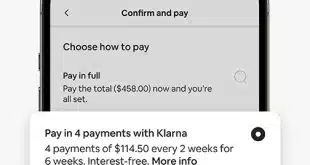The CFPB director should stop imposing politics on payments and stick to his remit.
Rohit Chopra, director of the Consumer Financial Protection Bureau, in March shared his conjured alternative-payments universe with politically simpatico CNBC. Relishing his celebrity, Chopra held forth on inflation, payment-system competition and fees, and cryptocurrency risk.
The network’s assumed framework for the interview was an uncompetitive payments industry chockful of villains, with consumers as victims and the Bureau as an enlightened and beneficent regulatory knight. It nicely captured our current financial regulators’ anti-private-sector zeitgeist.
CNBC pressed Chopra on what his office was doing to help beleaguered consumers with payment fees in a time of “very high inflation,” and suggested that increases by both Mastercard and Visa in their interchange fees would be a problem. Chopra ran with that idea, declaring a hike would be adding “insult to injury.”
To be sure, U.S. interchange rates have been high relative to many countries for more than half a century, but that has been true both during periods of raging inflation and periods of low inflation. The leading retail-payment networks aren’t driving inflation. Moreover, when interchange rises for merchants, cardholder fees typically decline and benefits increase. And issuer innovation flourishes—all of which is deflationary.
With two-sided payment systems, holistic value is what matters. Pricing set by competing payment networks, processors, and financial institutions—informed by the choices of millions of consumers and merchants, not by the preferences of regulatory poohbahs—is the best way to maximize total value.
Remember, inflation is caused by too much money chasing too few goods. The present administration may be blaming Big Oil, Big Food, and Russian despot Vladimir Putin, but it’s massive deficit spending, binge money-printing, negative real interest rates, a tight labor market, and production-suppressing regulation that make up the cocktail fueling our current raging inflation.
And by the way, it’s the Federal Reserve, not the CFPB, that’s charged by Congress with maintaining “stable prices.” If there were a competition problem, the Department of Justice and the Federal Trade Commission are tasked with enforcing antitrust laws.
An ‘Orwellian’ View
The CFPB director, nevertheless, eagerly declared that the United States doesn’t have “a competitive payment system” and that “we’re far behind many other countries.”
Chopra’s characterization was Orwellian. The U.S. payments industry is far more competitive and innovative than that of virtually all other countries.
Look at the retail-payment networks Visa, Mastercard, PayPal, American Express, Discover, Star, NYCE. Or at BNPL systems like Affirm and Afterpay, and at proprietary cards provided by Synchrony, Citi, and Bread (formerly Alliance Data Systems). These all compete fiercely, delivering ever-increasing value. That’s because the most ruthless and unforgiving regulator on the planet—the market—polices them.
Indeed, merchant acquiring and processing and credit-card issuance are all ferociously competitive. As a result, merchants and consumers enjoy enormous choice from a trove of constantly improving services and products.
For example, person-to-person payment systems, many of which are fee-free, include Zelle, Venmo, Square Cash, Apple Cash, Google Pay, Western Union, MoneyGram, and Wise. They offer consumers a surfeit of options to pay anyone, anywhere, any time.
Then there are systems provided by FIS, Fiserv, ACI Worldwide, Paymentus, and Mastercard, all of which make paying bills convenient—and, for consumers, generally free.
In the realm of interbank payments, the ACH systems from the bank association The Clearing House and from the Fed provide low-cost and reliable credits and debits. Increasingly, they’re same-day, though not instant, which is more than adequate for tens of billions of payroll and bill payments.
To be sure, policymakers worldwide tout the benefits of real-time interbank payments. Keen to be on the bandwagon, Chopra declared “We [the U.S.] need a fast, real-time payment system that is frictionless and low-cost,” alluding to the Fed’s FedNow service, slated to launch in 2023. In ChopraWorld, private-sector solutions clearly don’t count. Yet, the U.S. today has multiple competing low-friction, low-cost, private-sector real-time payment systems including not only TCH’s RTP, launched in 2017, but also Visa Direct, Mastercard Send, Zelle, FIS’s RealNet, Fiserv’s PopMoney, and Discover’s Deliver.
On the edge of the mainstream payments world, there’s creative ferment going on with cryptocurrencies and stablecoins. Perhaps some will find paths to payment-network critical mass and relevancy.
‘Fevered Imagination’
Chopra enthusiastically disparaged “junk fees,” such as late, overdraft, and NSF fees, as “nickel and diming” consumers. Nobody likes to pay these fees, but consumers have agency. Fees for borrowers not honoring their obligations are entirely reasonable, and encourage better behavior.
Punishing creditors by curbing fees when borrowers don’t honor their commitments is unjust, and will reduce the supply of credit. Paying late and bouncing checks should be stigmatized, not incentivized.
The CFPB director worries about new payment technologies leveraging tech platforms to scale. For a moment, with Diem and social-media colossus Facebook, that seemed a real possibility. While existing payment systems are well-established and work well, a challenger at scale—say, stablecoins supported by digital wallets from Facebook, Google, Apple, Amazon, and PayPal—would be a good problem for policymakers to contemplate.
Further, Chopra noted consumers using cryptocurrencies often don’t enjoy the protections baked into card payments. Fair enough. Law and enforcement are evolving based on real-world experience. But legislators, not regulators, should take the lead in establishing the regulatory framework.
Only in Chopra’s fevered imagination is the U.S. payment system uncompetitive. The Bureau’s director should take pains to be apolitical while narrowly enforcing existing consumer-finance law. It is not regulators’ prerogative to make policy—or to impose their political preferences on the payments industry.
—Eric Grover is principal at the payments consultancy Intrepid Ventures,
Minden, Nev.




